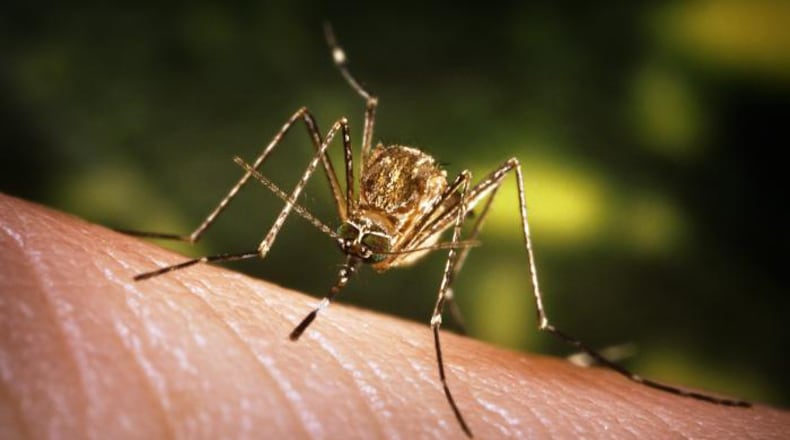Streets to be sprayed are: Randler Avenue, Pool Avenue, Bosco Avenue, Romanus Drive, Marcellus Drive, Neri Avenue, Pius Circle, Desales Street, West Alkaline Springs Road, Damian Street, Hertlein Lane and Helke Park.
During spraying, it is OK for people and pets to be outdoors; the mist will dissipate within 5 to 30 minutes depending on weather conditions; and the Duet spray is not corrosive and does not stain.
Signs will be placed in the area of the spraying and residents may call 937-225-4362 for more information.
There have been no reported human cases of West Nile virus in Montgomery County this year. In 2023, there were two human cases reported, according to Public Health.
Last week, Greene County Public Health reported a mosquito sample tested positive for West Nile in Fairborn, where the health department sprayed early Monday.
West Nile virus is most commonly spread through the bite of an infected mosquito and is the leading cause of mosquito-borne disease in the continental U.S. Symptoms include fever, headache, body aches, vomiting, diarrhea or rash, though most people infected do not feel sick. About one out of 150 people infected develop a serious, sometimes fatal, illness, according to the Centers for Disease Control & Prevention.
There are no vaccines or medicines to treat West Nile virus in people. However, risk can be managed by preventing mosquito bites through the use of insect repellent and by wearing long-sleeved shirts and pants.
About the Author

